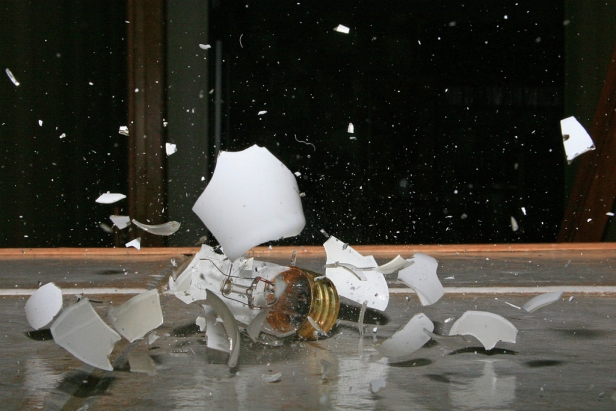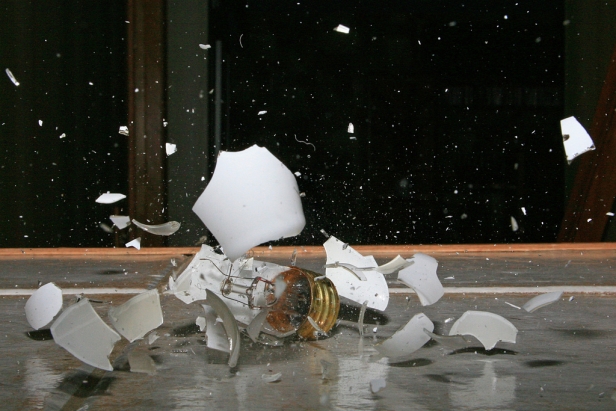 Why is Upton busting his own lightbulb standards?Photo: laszlo photoCross-posted from ThinkProgress Green.
Why is Upton busting his own lightbulb standards?Photo: laszlo photoCross-posted from ThinkProgress Green.
Lately it seems that the House Republican leadership is against everything that isn’t pre-approved by Big Oil or the Tea Party. Perhaps the most outlandish example of this Groucho Marx approach to public policy is the upcoming vote on the BULB Act, H.R. 2417. It would repeal the energy efficiency standards for lightbulbs established in the Energy Independence and Security Act of 2007 [PDF] (EISA). It would also prevent California from setting its own lightbulb efficiency standards. The original author of the provision is House Energy and Commerce Committee Chair Fred Upton (R-Mich.), who is now supporting the repeal of his own idea after conservatives attacked it along with other clean energy programs.
EISA, with Upton’s efficiency measure, passed the House in 2007 by a bipartisan vote of 319-100, with support from 49.7 percent of Republicans who voted and 98 percent of Democratic votes. President George W. Bush signed it into law.
Afterwards, Rep. Upton bragged in a press release, “Upton Measure to Upgrade Energy Efficiency Standards for all Light Bulbs Now Law”:
Current incandescent bulbs on store shelves are obsolete and highly inefficient — only 10% of the energy consumed by each bulb is for light with 90% wasted on unnecessary heat. Today’s incandescent bulbs employ the same technology as the bulbs Thomas Edison first created over 120 years ago.
This common sense, bipartisan approach partners with American industry to save energy as well as help foster the creation of new domestic manufacturing jobs. By upgrading to more efficient light bulbs, we will help preserve energy resources and reduce harmful emission [sic], all the while saving American families billions of dollars in their electric bills — and the benefits will be as easy as a flip of the switch.
Interestingly, this press release was removed from Upton’s website.
Upton was correct in 2007. EISA’s lightbulb efficiency standards would save about $100 per household annually in lower electricity costs, or about $12 billion per year when fully implemented. And despite false claims to the contrary, incandescent lightbulbs [PDF] will still be available, but they will use 28 to 33 percent less energy.
The new lightbulb efficiency standards are supported by the lightbulb manufacturing industry. “When this bill was passed, it was passed by people who knew how to make lightbulbs,” says Randall Moorhead, vice president of government affairs at Philips, a leading lightbulb producer. “Everyone supported it. And since then, it’s created more choice for consumers — we have two incandescent bulbs on the market that weren’t there before.”
Upton defended the efficiency standards in 2009. At a House Energy and Commerce Committee hearing, he said:
Our work on light bulbs wasn’t an arbitrary mandate. We didn’t just pick a standard out of the air, or look for a catchy sounding standard like 25 by 2025 not based in science or feasibility. Instead, we worked with both industry and environmental groups to come up with a standard that made sense and was doable.
But Upton reversed course after the Republicans won a majority in the U.S. House of Representatives in the 2010 election and conservatives attacked his handiwork. Archconservative radio host Rush Limbaugh savaged Upton and his bill:
This would be a tone-deaf disaster if the Republican leadership lets Fred Upton ascend to the chairmanship of the House energy committee. This is exactly the kind of nannyism, statism, what have you, that was voted against and was defeated last week. No Republican complicit in nannyism, statism, can be rewarded this way.
Fox TV personality Glenn Beck called Upton “all socialist” in November 2010 for his authorship of the efficiency measure.
Upton attempted to appease the right wing rather than defend his program from these false attacks. He promised, “If I become chairman, we’ll be reexamining the lightbulb issue, no problem.”
Since November, he has backed away even further from his energy innovation. The repeal bill is coming to the floor after bypassing the normal legislative process, including hearings. Ranking Energy Committee Democrat Henry Waxman (Calif.) wrote to Upton:
H.R. 2417 was introduced earlier this week on July 6, 2011. Obviously, the Committee has not had the opportunity to hold hearings on the legislation. Moreover, the Committee has not held any hearing — legislative or oversight — on the subject matter of the legislation.
We urge you to continue the Committee on Energy and Commerce’s long history of open debate by adhering to the tenets of regular order.
H.R. 2417, if it becomes law in any form, will actually hurt the economy and jobs by creating tremendous uncertainty for the companies that began to innovate by developing new, money-saving lighting products. Repealing it breaks the rules in the middle of the game after these companies began to follow the law.
It’s likely that Upton wants to rush through the repeal of his law because it is opposed by the Koch-brothers-funded Americans for Prosperity. Koch Industry employees were among Rep. Upton’s top 10 donors in 2010.
H.R. 2417 will be debated on under suspension of the rules [PDF], which prohibits any amendments and limits debate to 20 minutes per side. Upton, therefore, is not “reexamining” his invention — he is speeding its destruction.
This is but the latest example of House Republican leaders promoting a right-wing, dirty energy agenda that harms families and businesses rather than investing in innovation, new products, and jobs — even if they came up with the idea in the first place.




